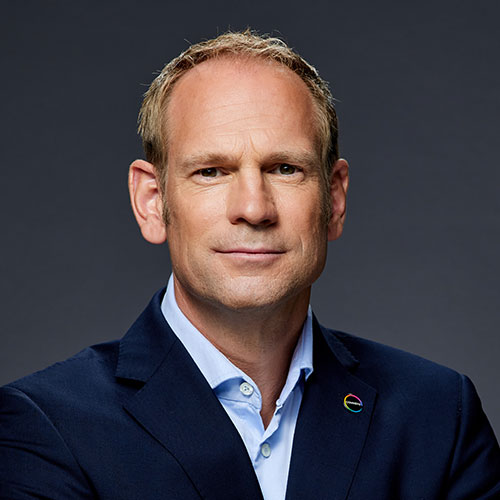Dr. Thorsten Dreier is Chief Technology Officer and Member of the Board of Management at Covestro. Dreier was born in Münster, Germany, in 1972. He studied chemistry at the University of Münster, from which he obtained his PhD in 2001. In 2002, Dreier joined the Bayer AG as a laboratory manager. He became assistant to the CTO of Bayer AG in 2004. Thereafter Dreier was responsible for Research & Development strategy, IP management and new business development at the Polyurethanes Business Unit of the former Bayer MaterialScience AG, now Covestro. He headed several departments at Process Research within the same business unit before joining Bayer Technology Services in 2013 as head of the Downstream Processes Engineering unit. In 2015 he was leading the spin-off of Bayer MaterialScience from Bayer AG within Bayer Technology Services. Afterwards in May 2015 he became the Head of Production & Technology of the business unit Coatings Adhesives & Specialties. In 2018 he became the Head of Specialty Films Business. In addition to this function he became the Head of Thermoplastic Urethanes in May 2020. Afterwards, in July 2021, he took over the role as Head of Business Entity Coatings & Adhesives. On July 1st, 2023 he became Chief Technology Officer and Member of the Board of Management at Covestro. In addition to his duties as Chief Technology Officer (CTO) Dreier took over the position of Labor Director from September 1st, 2023. As CTO and Labor Director of Covestro, Dr. Thorsten Dreier is responsible for central technological and operational areas of the company. In his position as CTO, he oversees the central functions Process Technology, Engineering, Group Health, Safety & Environment (Group HSE) and Group Procurement. He also coordinates the implementation and compliance of global processes, standards, and initiatives within Covestro's production network. Additionally, he is responsible for the business entity Performance Materials. Since 2023 Dreier is chair of the Committee for Energy, Climate Protection and Raw Materials at the German Chemical Association (VCI). Dreier is furthermore Deputy Chairman of the Board of the Chemical Industry Association of North-Rhine Westphalia (VCI NRW), Member of the Board at the German Association of Energy-intensive Industries (VIK), the World Energy Council Germany, Employers Association Chemie Rheinland and since January 2024 at the German Society for Chemical Engineering and Biotechnology (DECHEMA). He is Chair of the Programme Council Innovation at the European Chemical Industry Council (CEFIC) and member of the CEFIC Board. Dreier is married and has a daughter.
















